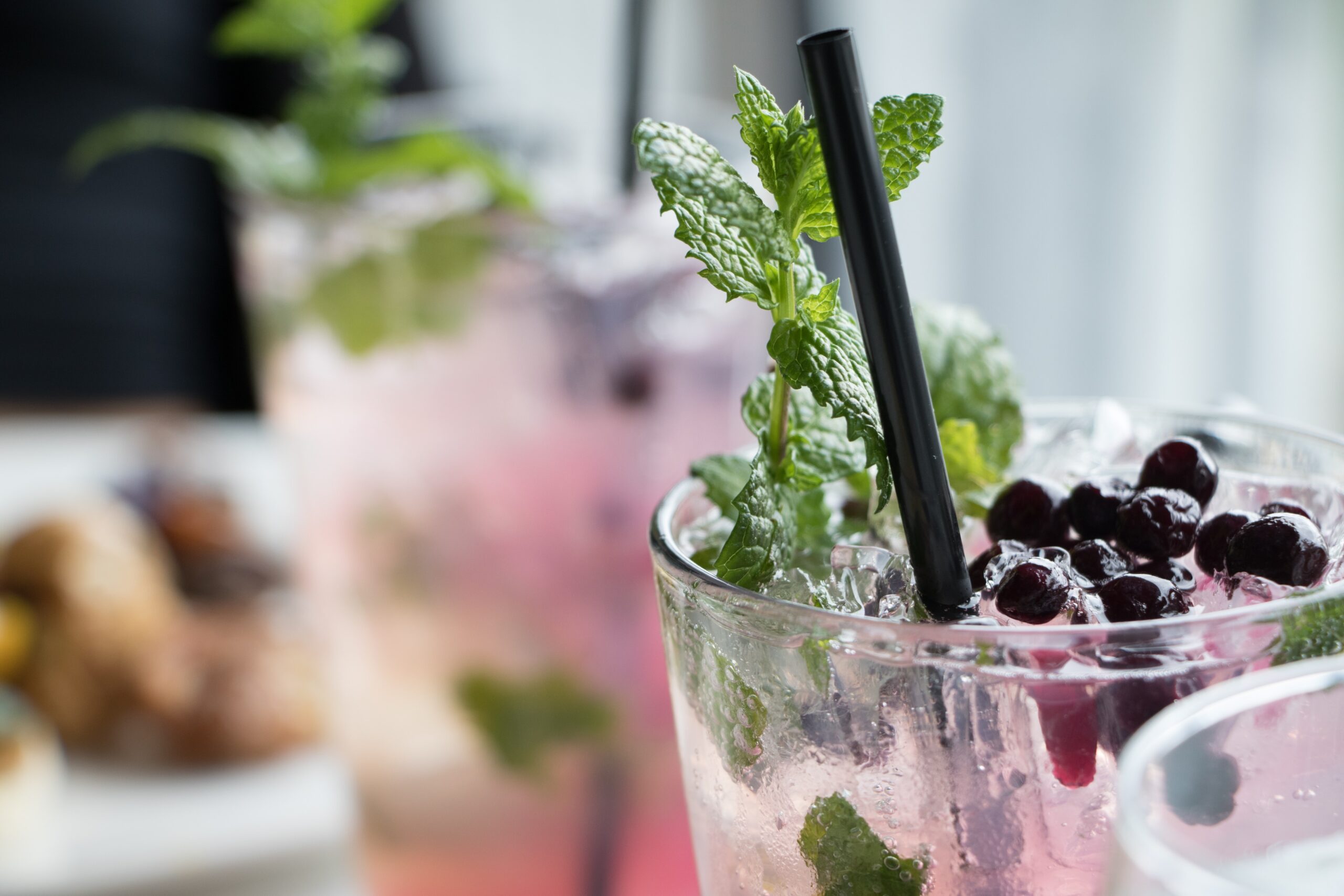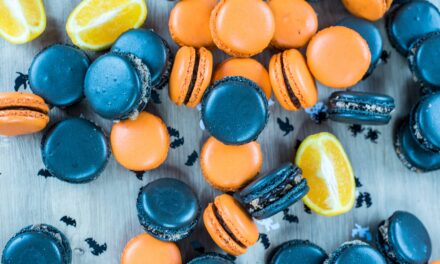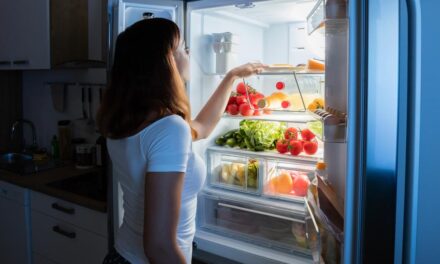Fasting Through the Holidays – How to Stay on Track With Your Health and Fitness Goals

You don’t have to read a scientific study to know that people generally gain weight during the holidays. But the average person doesn’t gain as much weight as you’d think…
Turns out that the claims of 5-10 pounds of holiday weight gain are mostly rooted in media sensationalism, and that the average person only gains about a pound from Thanksgiving to New Year’s. [1]
Still, that lonely pound is thought to be a major driver of long-term obesity. And even those who are actively attempting to lose weight are likely to gain it. [2]
So what can you do to stay on top of your health and fitness goals this holiday season?
We’ll show you what you can do to prevent weight gain in the first place, and how to lose weight after the holidays are over. But we’ll also be covering ways to reduce stress, to stay active, and to actually enjoy the time spent with friends and family.
Preventing weight gain
First thing’s first: it’s okay to gain a little bit during the holidays. We’re spending less time outdoors than usual, going to wayyy more parties with eggnog and pumpkin pie than in the summer. (100% more, to be technical.) And those are just facts of life. It’s okay to be a normal, happy human during the holidays.
What isn’t normal, historically speaking, is to have a feast without a fast.
To eat around the clock and feast and then continue eating and eating and eating and then feast again has only been possible since the agricultural revolution, and especially since the advent of refrigerators and modern transportation.
Before then, we feasted, and we fasted. We gained some weight. We burned it right off. And we were healthier because of it.
There was balance.
You can go the route of counting every single calorie this holiday season to make sure you’re in a perfect state of energy balance, though we don’t recommend it. That tedium is stressful enough during the rest of the year, let alone the high-stress holidays. (Sounds like a recipe for colossal breakdowns and stress-eating rampages, if you ask us.)
Or you can fast.
With a fasting mentality, you can enjoy the hams and pies and drinks without stressing about calories. (Please listen to your body and don’t over-overdo things.) Then the next day, when your body is primed with an abundance of minerals and nutrients, you blaze through a 24-hour fast with energy and happiness to spare. Or you can do a 20-hour fast, or try fasting for 16 hours, aka, a 16/8.
The point is that you’re not always eating, and that you have ample periods of time where your insulin is low and your body is relying on its own stored energy to meet its demands – which leads to the mobilization and oxidation of fat. The fat that non-fasters would keep all the way to New Year’s.
Rule # 1 of maintaining weight during the holidays:
If you’re going to feast, you’ve got to fast. Plan on following up Thanksgiving and Christmas celebrations with a prolonged fast of 24 hours or more. (Consult with your doctor before fasting, as per usual.)
Now let’s talk about losing weight during the holidays
For you hardcore types that see the yuletide as a challenge to keep on keepin’ on with your weight loss goals, you’ve got to be stricter with your feasts. And pretty much every other meal too.
The first step is to stick to an intermittent fasting routine of at least 16 fasting hours per day.
The shorter the daily eating window, the fewer calories you’re likely to consume, and the longer your body can tap into fat stores for energy.
You don’t want to stay in a negative energy balance for too long, though. This can lead to a metabolic slowdown where you have to eat less and less to maintain the same weight.[11] Better to balance weight loss periods of 2-3 weeks with a week or more of eating at maintenance.
(This method of weight loss was verified in the MATADOR study.)
If you’ve already got a firm time-restricted eating or intermittent fasting habit, that’s great. But if you need a little more accountability and reminders, you should definitely download one of the fasting apps we recommend. These apps include timers for your eating and fasting windows, personalized fasting recommendations, and a whole lot more.
(Make sure to check out our article on how to figure out the right fasting method for you.)
The second is to try a round of the Fasting Mimicking Diet (FMD) or an equivalent metabolic reset.
The FMD is a clinically-proven alternative to fasting that results in a net loss of 5 pounds in just the first round, which comprises 5 days of eating 500-600 calories on average. It was specially formulated to help cancer patients hack the anti-stress benefits of fasting without the pain of physically not eating for long stretches of time.
Importantly for holiday weight loss, most participants in the FMD trials said that they were better able to resist sugary foods and to control portions after their first round. So if you want to combine intermittent fasting with a pre-holidays round of the FMD, you’ll be better equipped to eat the foods you know you should and to pass on the ones you shouldn’t.
Ben Greenfield has a homespun version of low-calorie fasting with food, where eats about 40% of his usual calories for a week, relying mostly on a low-protein kitchree. You can also consider going on a cleanse such as Dr. Mark Hyman’s 10-Day Reset or Sakara Life’s Level 2 Detox Cleanse.
Third is to exercise.
We’re not talking run-of-the-mill cardio-till-you-cry exercise, though. Working out to create a caloric deficit is a fast way to burn out and potentially slow up your metabolism. Ben Greenfield recommends exercising before feasts (and regular meals) for a few reasons:
- exercise increases your insulin sensitivity [3]
- working out in a fasted state increases your anabolic response to food – which means more energy stored as muscle, less as fat [4]
- exercise reduces post-meal blood sugar, which helps to reduce subsequent crashes and cravings [3]
According to the research on pre-meal exercise, thirty minutes of moderate-intensity exercise is beneficial – but six short bouts of high-intensity exercise is just as effective. [6] The term researchers use for the short bouts is ‘exercise snacks’, which is a minute of 90% max effort repeated 6 times. (Think: pushups, pullups, sprints, squats, bear crawls, etc.)
Whether you want to maintain or lose weight, strategically timed exercise is your best bet this holiday season – either directly before or after your meals. And from personal experience from us here at Fasting.com, doing a quick workout after a big meal can prevent Food Coma Syndrome (FCS)… you know, so you can actually enjoy your company.
Cut back on stress
Research shows that stress during the holidays contributes to comfort eating, especially for women. [7] Per this research, the biggest stressors are a lack of time, money, and the pressure of commercialism.
Since stress contributes to unhealthy eating habits and signs of metabolic dysregulation (such as high blood pressure and insulin insensitivity), it’s safe to say that finding ways to reduce stress is a top priority for maintaining your health and fitness over the holidays.
Here are some of the best ways.
Stress-buster #1: meditate
Between family staying at your house and cooking/entertaining, you won’t always be able to control your time during the holidays. (Bonus points if you can reduce time spent watching TV or mindlessly surfing the internet.) What you can control is how present you are during each moment you have.
If you’re constantly worrying about things that might not even happen, you won’t be fully present to the tasks and people at hand. This leads to less and less being accomplished, and more stress piling up.
The best option is to carve out even just a few minutes each day for mindfulness meditation. This will help you become aware of stressful thought patterns while giving you more power to shift your focus. Here are some of the best meditation apps of 2020.
Stress-buster #2: eighty-six the commercialism
Money and commercialism rank at the top of the main holiday stressors. So why not take a step back, realize that happiness is about togetherness and quality time, and defenestrate the commercialistic side of the holidays?
Gifts are definitely an important part of the Christmas season. But the non-verbalized rule of gifting these days is that you have to max out your credit cards and stack your pile of presents higher than last year. This does way more for manufacturers of useless ‘stuff’ than it does for us.
The burden of supplying this junk can max out your stress meter, too.
Here are some alternatives to the barrage of commercial gifting:
- start a gift exchange for your extended family where each person has to buy just one gift at a reasonable price limit
- buy only one gift for each of your children
- dispose of the gifts altogether and put your money towards an experience the whole family will love: ski trip, trip to the beach, etc.
These steps will not only save you money – sigh of relief! – but they’ll substantially reduce the extra time spent shopping for gifts and wrapping them.
Stress-buster #3: hit the sauna
We’re eating more processed foods, drinking more alcohol, and exercising less than usual… Our bodies are physically under more stress during the holidays. One scientifically proven way to combat this stress is, ironically, to add another type of stress – heat stress.
Sauna therapy is known to increase heatshock proteins throughout the body, also produced while fasting, which makes us more resilient to all kinds of stress. Studies show that regular sauna use significantly reduces the risk of cardiovascular mortality and all-cause mortality – both of which are linked to stress. [8] Other studies have determined that sauna bathing can even reduce blood pressure. [9]
Dr. Rhonda Patrick, prolific sauna researcher, started her research into sauna therapy after noticing a substantial decline in mental stress while getting her Ph.D. “I was using it about five days a week, and I started noticing that I felt really good – like, my mood was noticeably enhanced,” she said at a conference on biohacking. “I was also able to handle stress better, and my anxiety was down.”
Dr. Patrick says that the thermoregulatory pathways related to sauna bathing end up sensitizing our brains’ cells to endorphins, which help to relieve stress and anxiety. Another bonus of sauna therapy is that it mimics exercise – an effect brought on by increased body temperature and heart rate. [10]
Though many of the studies include sauna temperatures up into the 180-degree range, you shouldn’t start with anything higher than 140 degrees Fahrenheit, or any longer than 20-30 minutes. The safest route is to consult your doctor before attempting any form of heat therapy.
And since many saunas have closed temporarily due to coronavirus, you might want to invest in a portable sauna. We recommend the Higher DOSE sauna blanket because of its affordable price and low EMF output.
Fasting Through The Holidays—Wrap Up
Even though this holiday season is more stressful than usual because of covid-19, it could be your healthiest (and happiest) one yet if you follow the steps outlined in this article:
- Whenever you feast, follow it up with a fast
- Experiment with a round Fasting Mimicking Diet before and after the holidays, or a similar cleansing protocol.
- Exercise before or after meals to improve metabolism
- And reduce stress by meditating, cutting back on over-gifting, and starting a sauna routine.
Happy fasting! And don’t forget to consult your healthcare practitioner before starting any new fasting or diet regimen.





